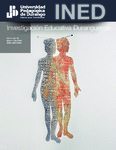
Please use this identifier to cite or link to this item:
http://ricaxcan.uaz.edu.mx/jspui/handle/20.500.11845/1109Full metadata record
| DC Field | Value | Language |
|---|---|---|
| dc.contributor | 201402 | es_ES |
| dc.contributor | 339061 | es_ES |
| dc.contributor.other | https://orcid.org/0000-0003-3624-0463 | - |
| dc.contributor.other | https://orcid.org/0000-0002-6170-6918 | - |
| dc.creator | Salas Luévano, Marco Antonio | - |
| dc.creator | Rodríguez González, Lizeth | - |
| dc.creator | Hernández Berumen, José de Jesús | - |
| dc.date.accessioned | 2019-09-20T15:13:15Z | - |
| dc.date.available | 2019-09-20T15:13:15Z | - |
| dc.date.issued | 2016-01 | - |
| dc.identifier | info:eu-repo/semantics/publishedVersion | es_ES |
| dc.identifier.issn | 2007-039X | es_ES |
| dc.identifier.uri | http://ricaxcan.uaz.edu.mx/jspui/handle/20.500.11845/1109 | - |
| dc.identifier.uri | https://doi.org/10.48779/rfpc-nq41 | - |
| dc.description | This is part of a larger study onmonitoring of graduates in the specialty and Computer Technologies Applied to Education (ETIAE). The aim is to investigate the level of training acquired and brought value ETIAE program, to make decisions and provide feedback on the educational offer. The parametric methodology is not descriptive, the training received was analyzed, expectations and program quality through Ji2 independence test with SPSS.The results indicate that there is dependence forming contrast, expectations and quality of program variables teaching-learning process, likewise the hypothesis and its relationship with these aspects are found. With information from research, it has formed database for the evaluation of the program by national agencies. | es_ES |
| dc.description.abstract | El presente es parte de un estudio más amplio sobre seguimiento de egresados en la Especialidad en Tecnologías en Informáticas Aplicadas a la Educación (ETIAE). El objetivo es investigar el nivel de formación adquirida y el valor aportado del programa de ETIAE, para tomar decisiones y retroalimentar la oferta educativa. La metodología es descriptiva no paramétrica, se analizó la formación adquirida, las expectativas y la calidad del programa con las variables del proceso de enseñanza aprendizaje, así mismo, se comprobó la hipótesis y su vinculación con esos aspectos. Con la información de la investigación, se ha confirmado una base de datos para la evaluación del programa por parte de organismos nacionales. | es_ES |
| dc.language.iso | spa | es_ES |
| dc.publisher | Universidad Pedagógica de Durango | es_ES |
| dc.relation.uri | generalPublic | es_ES |
| dc.rights | Atribución-NoComercial-CompartirIgual 3.0 Estados Unidos de América | * |
| dc.rights.uri | http://creativecommons.org/licenses/by-nc-sa/3.0/us/ | * |
| dc.source | Investigación Educativa Duranguense. Vol. 9, No. 16. Enero-Julio 2016 | es_ES |
| dc.subject.classification | HUMANIDADES Y CIENCIAS DE LA CONDUCTA [4] | es_ES |
| dc.subject.other | seguimiento de egresados | es_ES |
| dc.subject.other | capital de humano | es_ES |
| dc.subject.other | formación | es_ES |
| dc.subject.other | expectativas | es_ES |
| dc.subject.other | calidad | es_ES |
| dc.subject.other | tracking graduates | es_ES |
| dc.subject.other | human capital | es_ES |
| dc.subject.other | training | es_ES |
| dc.subject.other | expectations | es_ES |
| dc.subject.other | quality | es_ES |
| dc.title | La formación adquirida, expectativas y cualidades en especialidad. Un análisis no paramétrico de Ji2 y Prueba de Independencia | es_ES |
| dc.type | info:eu-repo/semantics/article | es_ES |
| Appears in Collections: | *Documentos Académicos*-- UA Docencia Superior | |
Files in This Item:
| File | Description | Size | Format | |
|---|---|---|---|---|
| 2016_InvestigacionEducativaDuranguense16.pdf | 103,49 MB | Adobe PDF |  View/Open |
This item is licensed under a Creative Commons License
